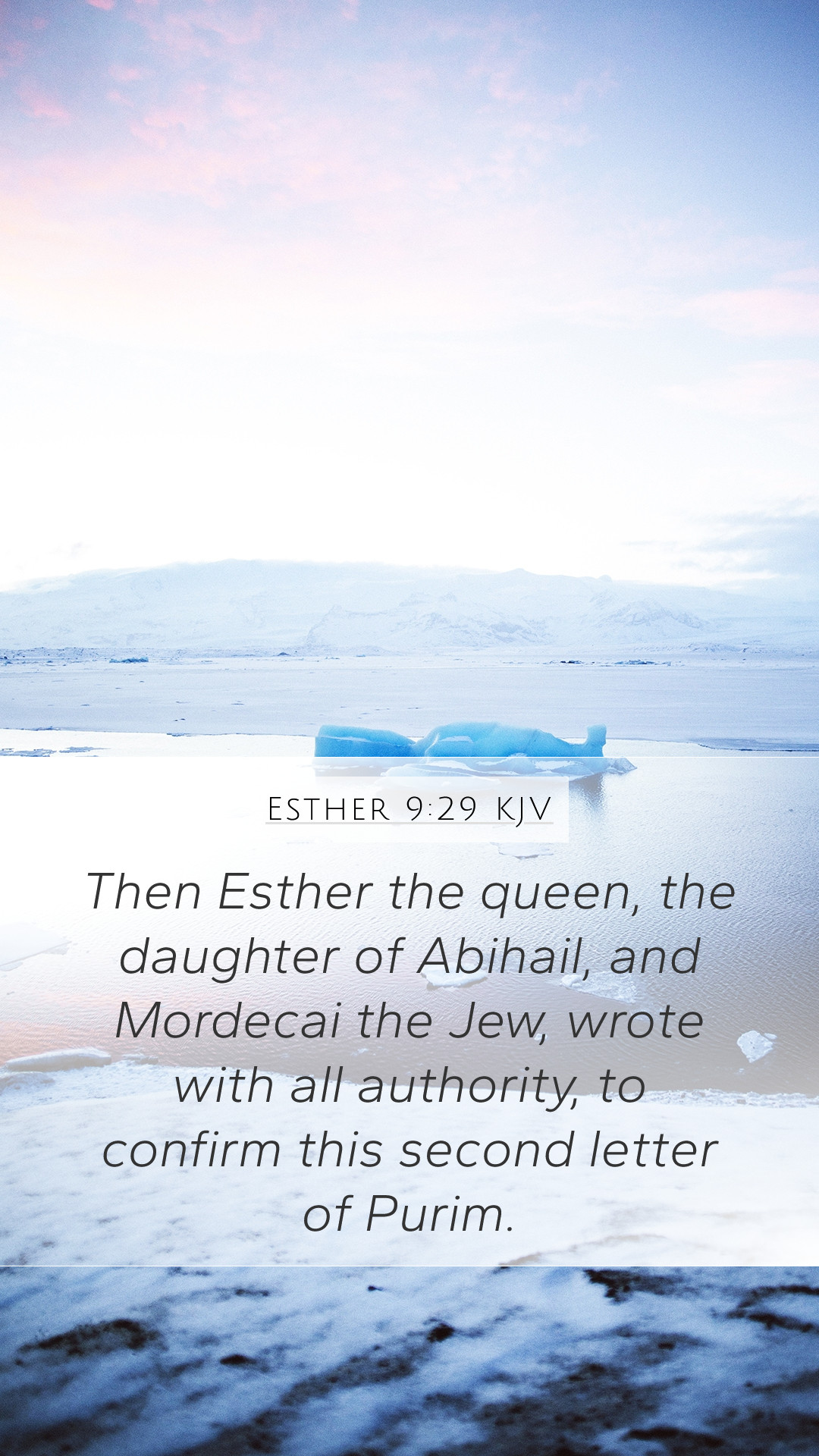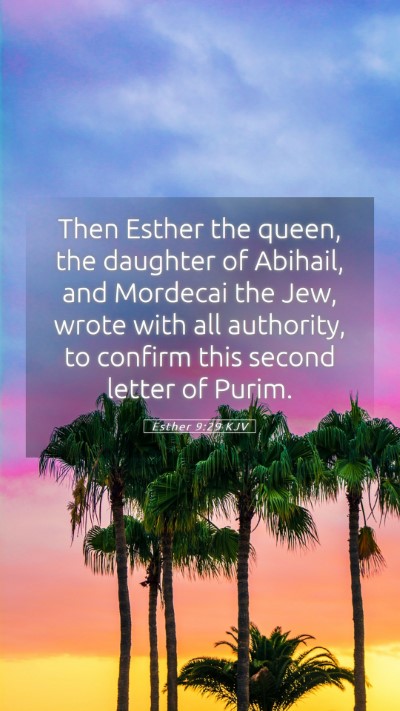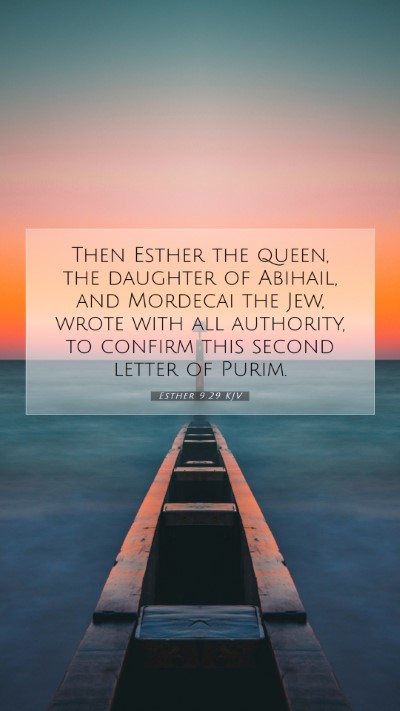Bible Verse Commentary: Esther 9:29
Esther 9:29 (ESV): “Then Queen Esther, the daughter of Abihail, and Mordecai the Jew gave full written authority, confirming this second letter about Purim.”
Overview of Esther 9:29
This verse serves as a conclusion to the events surrounding the celebration of Purim, a festival established to commemorate the deliverance of the Jewish people from destruction. The verse highlights the formalization of this celebration through a letter authored by Queen Esther and Mordecai, emphasizing the importance of writing and authority in Jewish tradition.
Insights from Public Domain Commentaries
Matthew Henry's Commentary
Matthew Henry discusses the significance of Esther's initiative in ensuring that the deliverance of the Jewish people is not forgotten. Esther’s role illustrates the power of influence and the importance of preserving cultural identity through written authority. The formal letter serves to remind future generations of God's faithfulness and the importance of communal observances.
Albert Barnes' Notes on the Bible
Albert Barnes highlights that this verse points to the legitimacy and solemnity of the festival of Purim. The act of establishing a written record reflects the Jewish emphasis on memory and tradition. This documented decree ensures that the story of their deliverance remains central to Jewish heritage and worship, integrating the themes of survival and joy into the faith practice.
Adam Clarke's Commentary
Adam Clarke adds that the collaboration between Esther and Mordecai signifies a unified effort in leadership and faith. The written authority not only serves to commemorate their past victories but also invites future generations to partake in the celebration, promoting unity among the people. Clarke emphasizes that such acts of remembrance serve as spiritual fortifications against oppression and despair.
Theological Implications
The establishment of the letter about Purim reflects overarching biblical themes: the providence of God in history, the importance of community, and the celebration of divine deliverance. Through Esther and Mordecai, we see how God works through individuals to achieve His purposes, reinforcing the belief that every detail of our lives is known and cared for by Him.
Application for Today
The verse calls for modern believers to recognize and celebrate the acts of deliverance in their own lives while encouraging communal expressions of faith. It serves as a reminder to document and share testimonies of God's goodness, fostering a legacy of faith for future generations.
Cross References
- Esther 9:28: Further details about the observance and significance of Purim.
- Exodus 12:14: The establishment of the Passover, another significant Jewish festival of remembrance.
- Psalms 78:4: The importance of telling the stories of God's deeds to the next generation.
- Deuteronomy 6:7: Instructions for teaching children about God's commands and deeds.
- Luke 22:19: The act of remembrance in the Christian tradition through communion.
Conclusion
Esther 9:29, while seemingly a simple declaration of authority, is rich in meaning and significance within the biblical narrative. It encapsulates vital lessons about faith, remembrance, and the power of community. The insights from esteemed biblical commentators provide a deeper understanding of this verse, reinforcing its relevance for both historical context and contemporary application in the lives of believers.
Further Bible Study Insights
For those participating in bible study groups or seeking online bible study resources, this verse offers an opportunities for in-depth analysis and discussion on themes of remembrance, authority, and communal identity in the faith.


